University News
Ladwig/Wade Collection Donated to WIU Libraries' Archives Chronicles Family Divided by World War II
November 7, 2016
The collection of more than 300 photos and images features historical military photos from WWI and WWII, as well as images of individuals in the British Women's Land Army.
MACOMB, IL — It's a tale of a German family divided by World War II—some were victims of the Nazis, some of them were sympathizers with them. It's also a story that chronicles how some of these individuals and their descendants wound up in western Illinois and owned and operated the Monmouth (IL)-based Western Stoneware Company. And, thanks to David Wade, his wife Linda, as well as Bradley Wade and his partner Darren Coleman, and through Western Illinois University Libraries' Archives and Special Collections, the story is online for everyone to see. The family members have donated the Ladwig/Wade Family Collection of more than 300 photos and images of memorabilia saved over the years.
The collection — currently available organized in nine online folders (http://tinyurl.com/nk4pnj9) — noted Linda, who works in WIU Libraries' digitization unit, is important not only because of the unique historical background of the family—many Jewish members of whom immigrated to England, Canada and the U.S.—but also because of the sheer amount of content included.
Images from David's maternal grandfather's side of the family (the Ladwigs, who were Lutherans) include rare photos of German soldiers in the field during World War I, as well as a photo of a Ladwig family cousin, Helmut Ladwig, a high-ranking airman in the Nazi Army in World War II, in his Nazi uniform. The collection also includes U.S. military photos and images of memorabilia from David's father's (Gene's) side of the family, the Wades, who hailed from Virginia.
"Gene's brother, Richard 'Dick' Wade, fought in WWII in the U.S. Army and was highly decorated, with a Bronze Star and two Purple Hearts," the Wades state in an online document that provides an overview of the collection. "Included in this collection is a photo of the Japanese prayer flag he captured in the Philippines. At one point, Dick suffered a head wound and other life-threatening injuries. He was thought to be dead until someone realized he was holding his own pressure points. He returned to Monmouth to recover from his near-mortal injuries," they added in the collection description.
"The collection is also significant for western Illinois history, particularly around the Monmouth and Macomb area," Linda said. "Ursel, David's mother, and Margot, his aunt, left Germany on a Kindertransport train in 1939 to London before Hitler invaded Poland. The sisters ended up in this region because their brother, Karl Ladwig, immigrated from Germany to Rock Island to attend seminary school. Through arrangements made by Karl, Ursel and Margot left England in 1946 to come to the U.S. Eventually, Ursel married David's father, Gene Wade, and after they were married, Ursel and Gene bought Western Stoneware, a regionally significant pottery company."
Linda and David noted, over the years, Western Stoneware (abbreviated as WSCo) had merged with other western Illinois pottery and stoneware companies, including Monmouth Pottery, Macomb Pottery, Macomb Stoneware Company, Weir Pottery, White Hall Pottery, Clinton Stoneware Company and Fort Dodge Stoneware. Although the Wade family sold the company in 1973, today, Western Stoneware is owned, once again, by the Wade family. Linda and David purchased it in 2014.
"WSCo dates back to 1859 and has deep roots in Macomb and Monmouth," the overview document states. "As owners of this regional historic company, we thought our family history would be of interest to historians and researchers in the area and beyond. In addition to the pottery that was made in the area, the clay used to be sourced from Colchester. But, eventually, the mines went dry," Linda said during an interview with her and David at Western's Leslie F. Malpass Library.
David's maternal grandmother's side of the family were Jewish, the reason why many of them immigrated to various countries in the West. After arriving in England in 1939, Ursel and Margot, David's mother and aunt, joined the British Women's Land Army, a civilian organization that existed during WWI and WWII.
"Women in the WLA were called 'Land Girls' if they did farm work, and 'Lumber Janes' when cutting trees. These ladies kept food on London tables while the men were off fighting the war," the Wades also explain in the overview document. "Margot and Ursel lived in a hostel (dormitory) and worked various farms in the Milford and Guildford areas of the United Kingdom. It wasn't all work, as they did sometimes get to take holidays and enjoy the beaches at Babbacombe and Torquay (which is present day Devon Cliffs). Additionally, for fun they played football, or as Americans call it, 'soccer.' This collection contains photos of the time Aunt Margot and Ursel spent serving in the WLA from 1941–1946."
While some Jewish members of David's family left Germany to escape Hitler's persecution, his grandmother stayed behind, which resulted in her death at the most infamous Nazi death camp.
"My grandmother refused to leave because she wanted to stay with her parents, who were elderly and ailing. And she was quite defiant anyway. It was only recently, thanks to Linda's digging around, that we discovered the true fate of my grandmother. She was deported to Auschwitz in 1943 from the house they had always lived in," he explained. "My grandfather was in WWI, and he served as the head engineer for the Essen Coal Company until he died. That's now a world historic site where he worked."
According to Linda, gathering all of the metadata—the information used to describe the images and photographs in the collection—was a huge undertaking.
"It probably has taken us two-three years to get it all done for the collection. We attempted to figure out as much as we could about who is in the photos and where they were taken. We used the U.S. Holocaust Museum database, as well as the international tracing service to help us verify. Unfortunately, neither Margot nor Ursel talked much about their past lives. Margot didn't think anyone would be interested in her old photographs and threw them in the trash. Thank goodness, though, they were rescued by a friend," she said.
Through using resources like the Holocaust Museum and the tracing service, the Wades discovered a Jewish refugee had gotten David's Aunt Margot out of Germany on the Kindertransport.
"We also discovered that both Ursel and Margot were added to a mysterious 'List 5.' No one currently working at the museum knows what List 5 is or why they were on List 5," Linda noted.
"And, as far as we know, they were the only two people on the Kindertransport on this List 5," David added.
The "Ladwig/Wade Collection History" overview document includes much more detail about the fascinating historical images found in the collection.
For the Wades, gathering and painstakingly describing the materials has been a way to contribute one family's perspective and experiences to the 20th-century record. But it's also been a labor of love and way to honor all that members of David's maternal family endured, as noted in the overview document in the online collection: "In [Ursel's and Margot's] memory, we donate these photographs and other documents. Margot passed away on January 3, 2014, at the age of 96. Ursel died later that year on November 24, 2014, at the age of 90."
To view the entire collection, visit http://collections.carli.illinois.edu/cdm/search/collection/wiu_rhist/searchterm/ladwig/field/all/mode/all/conn/and/order/title/ad/asc.
For more information, contact Linda Wade at (309) 298-2289 or via email at LA-Wade@wiu.edu.
Posted By: Teresa Koltzenburg (WIUNews@wiu.edu)
Office of University Communications & Marketing


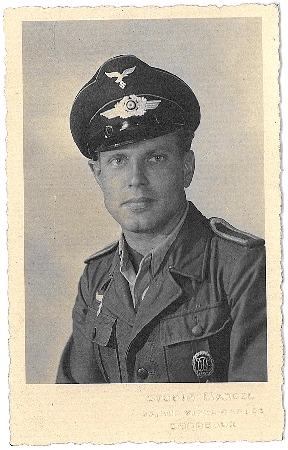
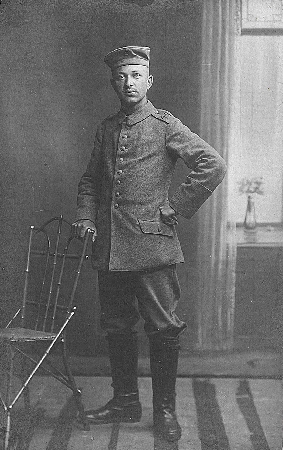
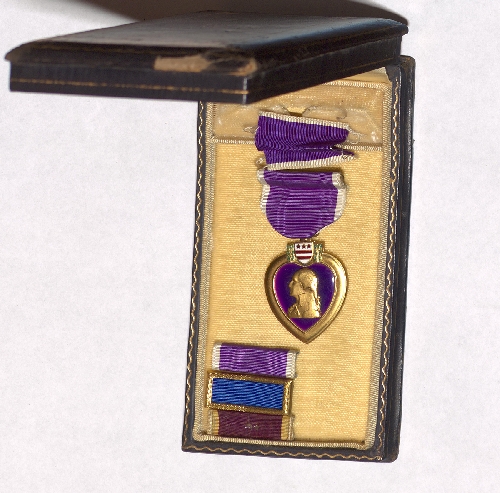
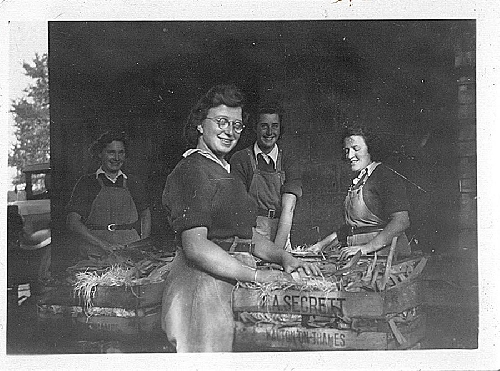
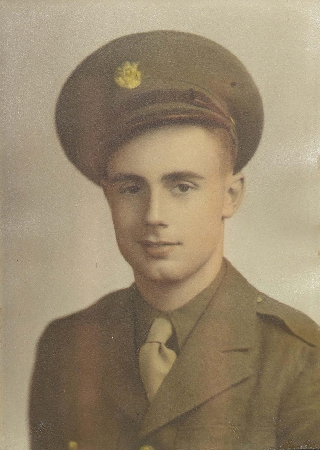
Connect with us: